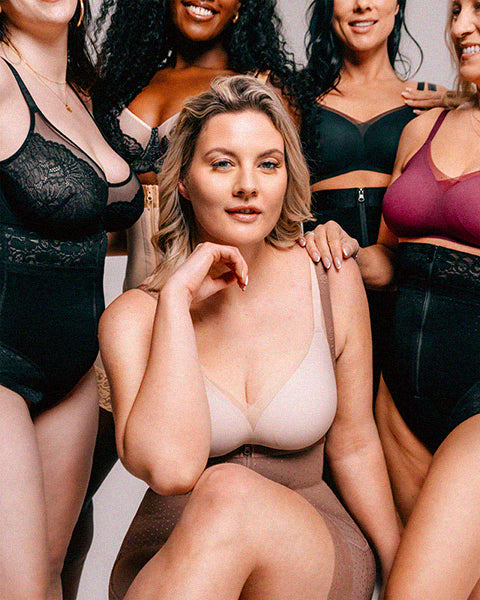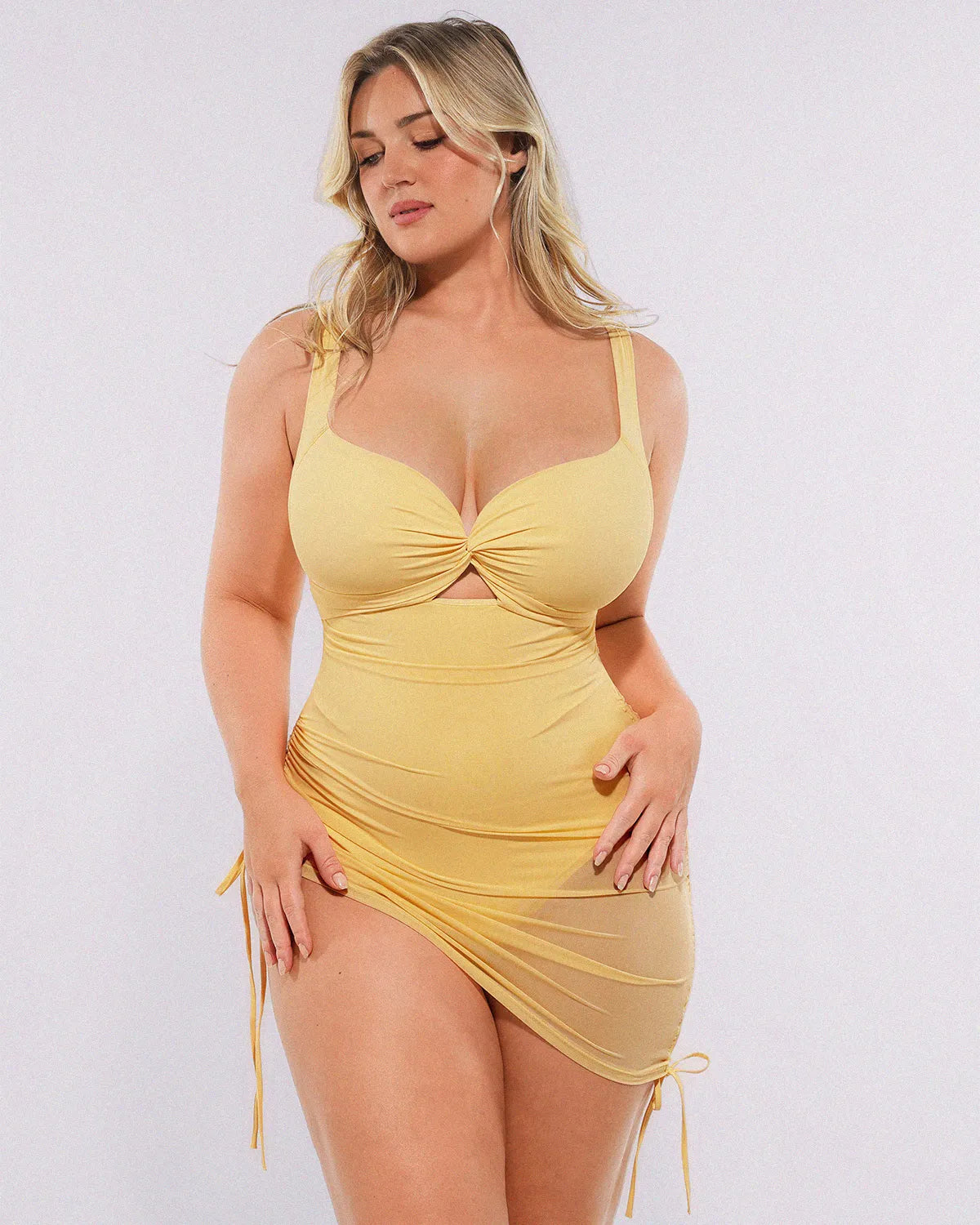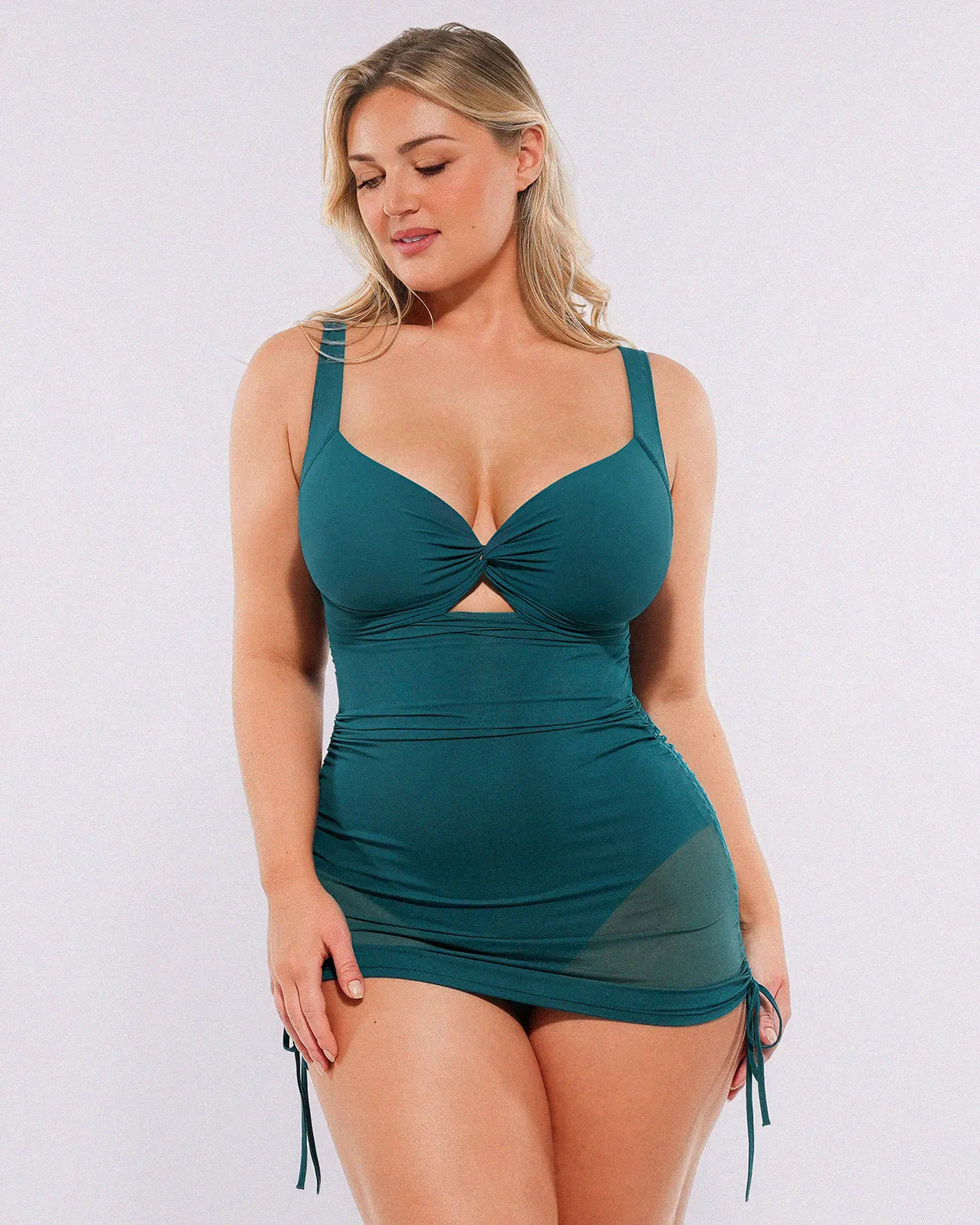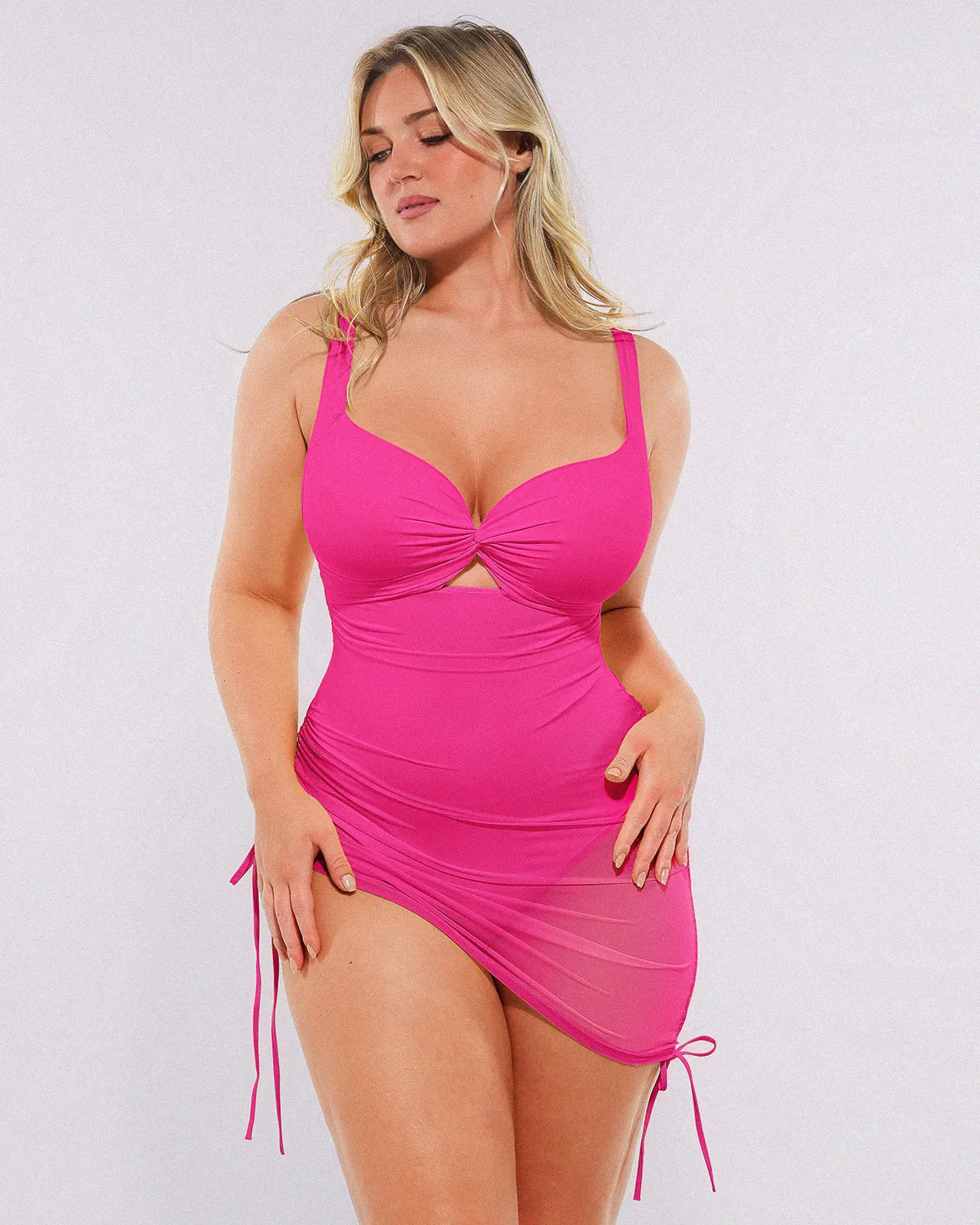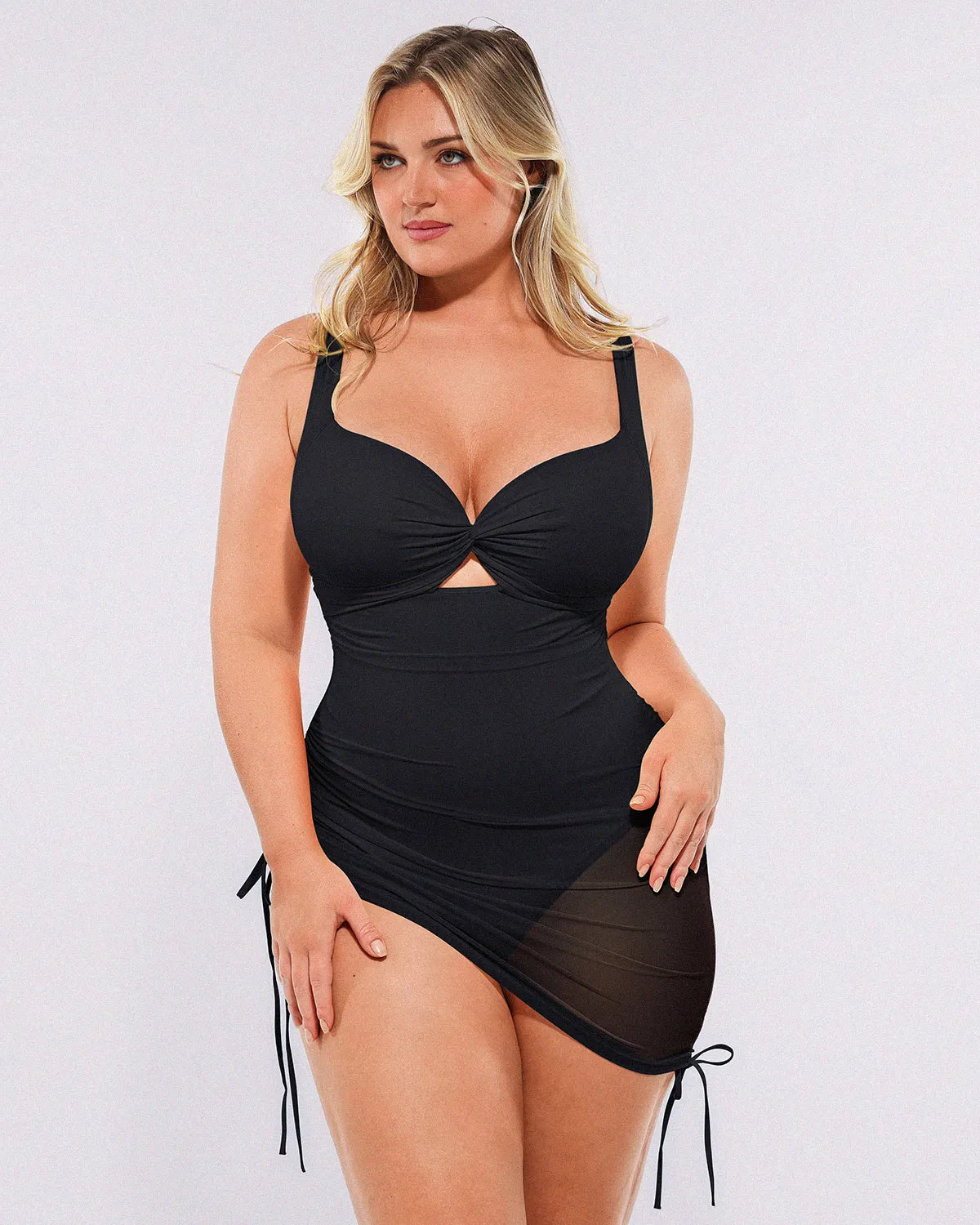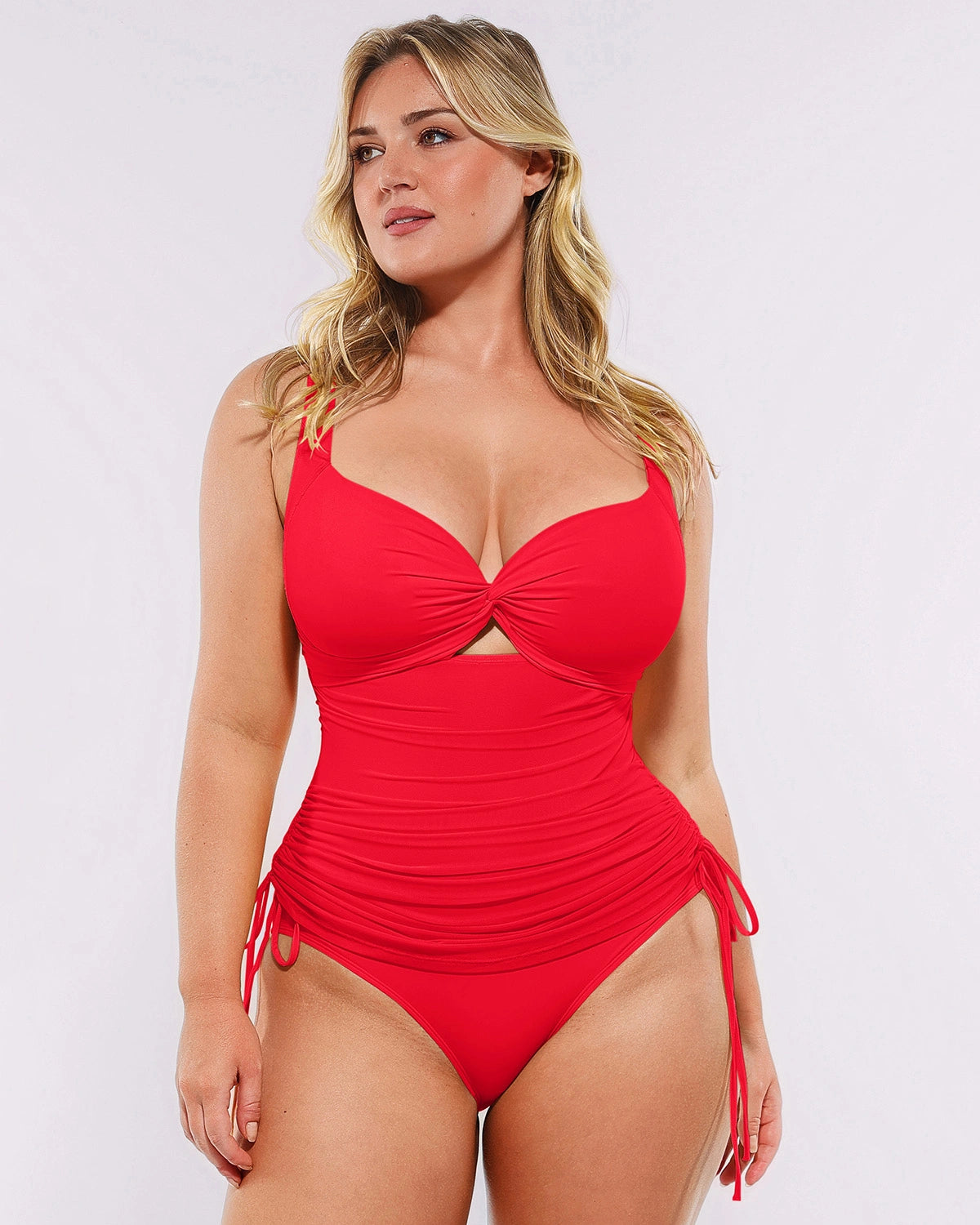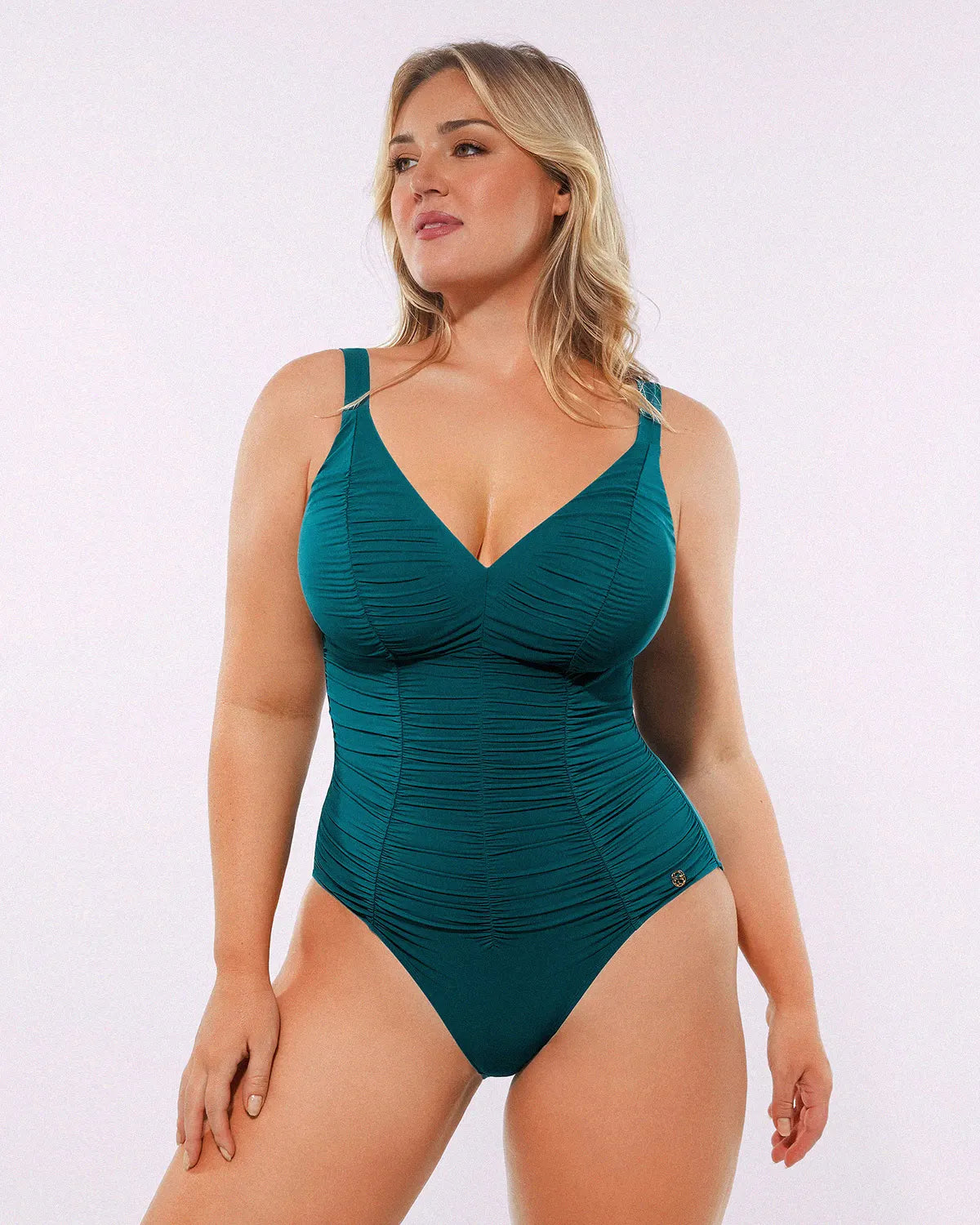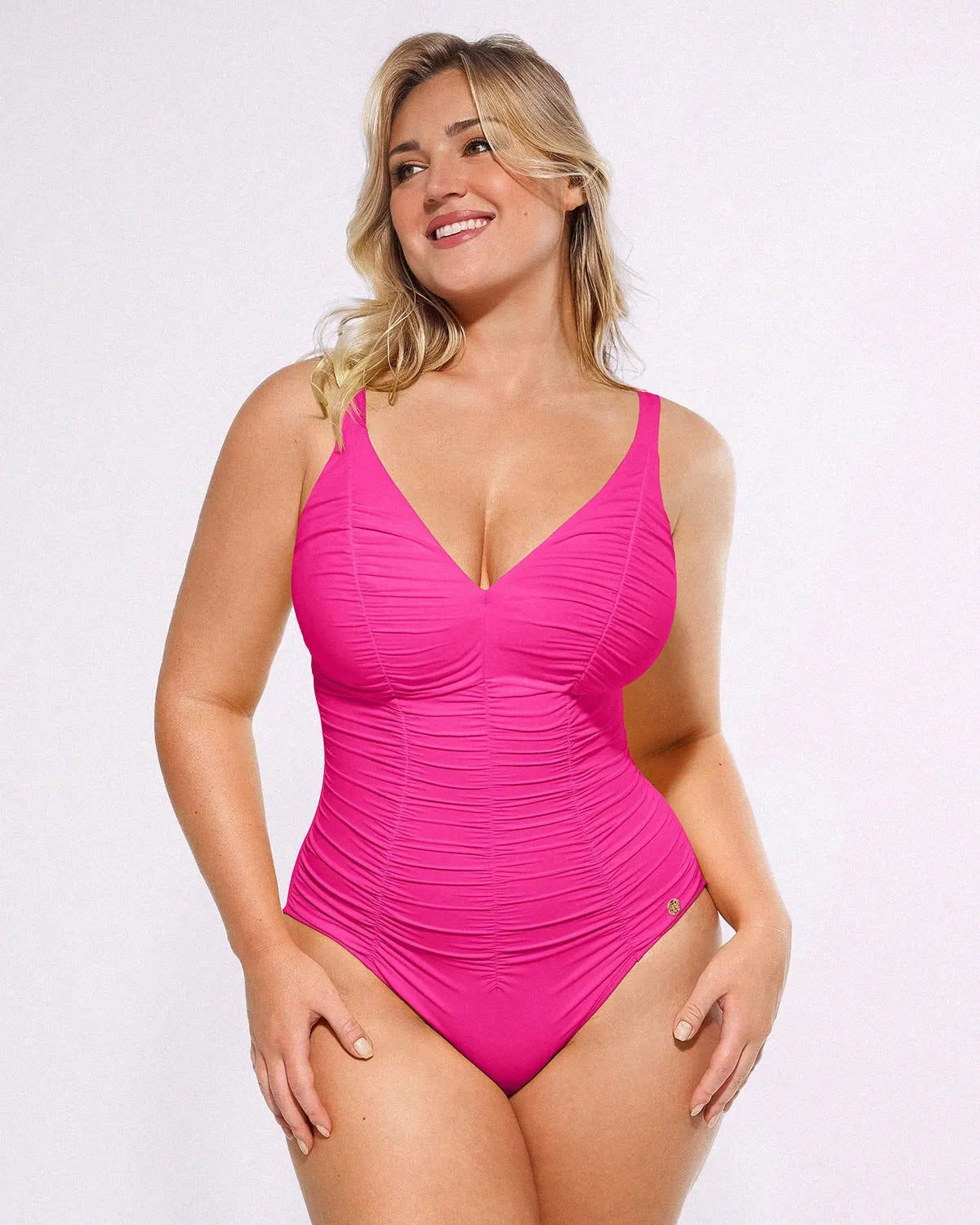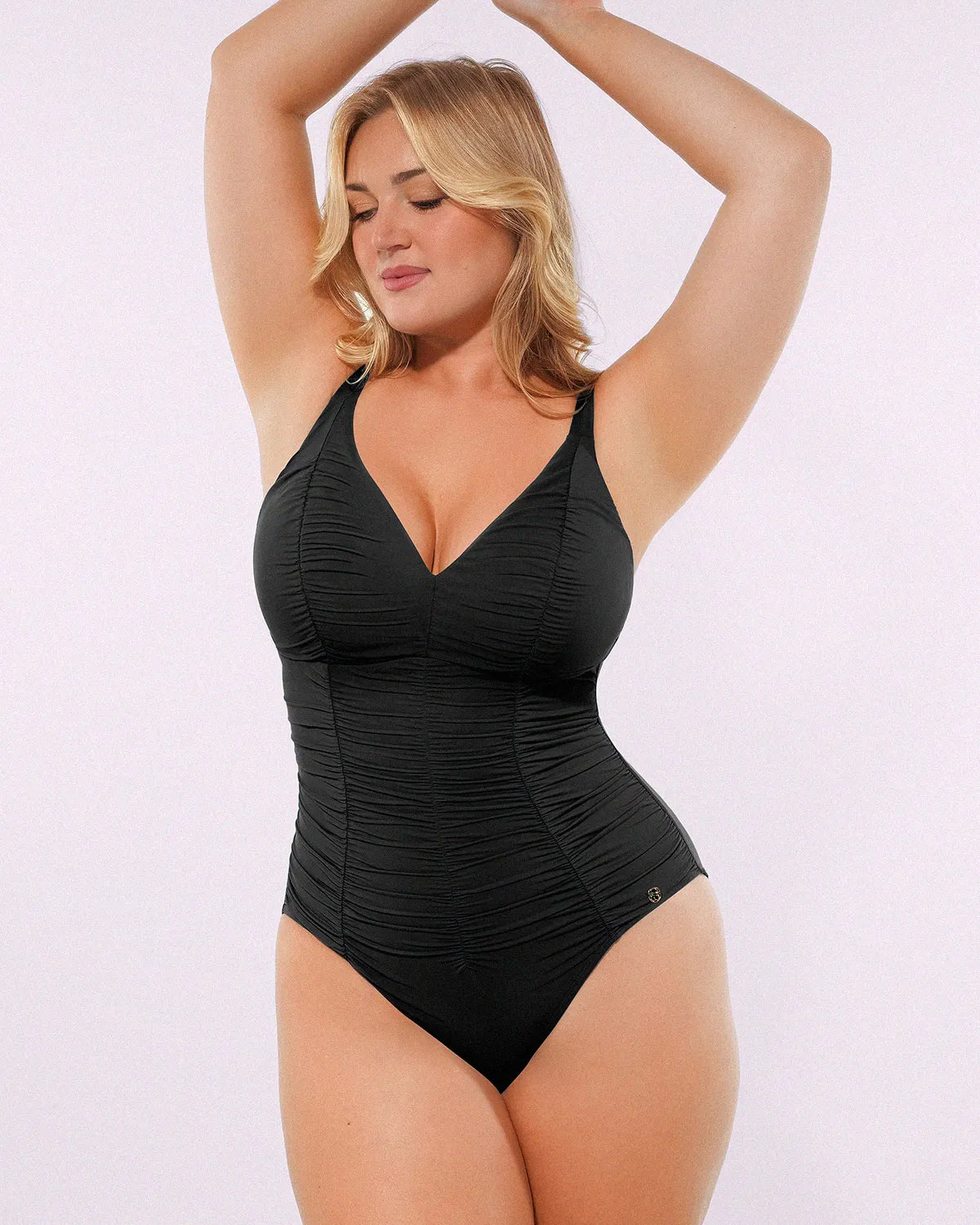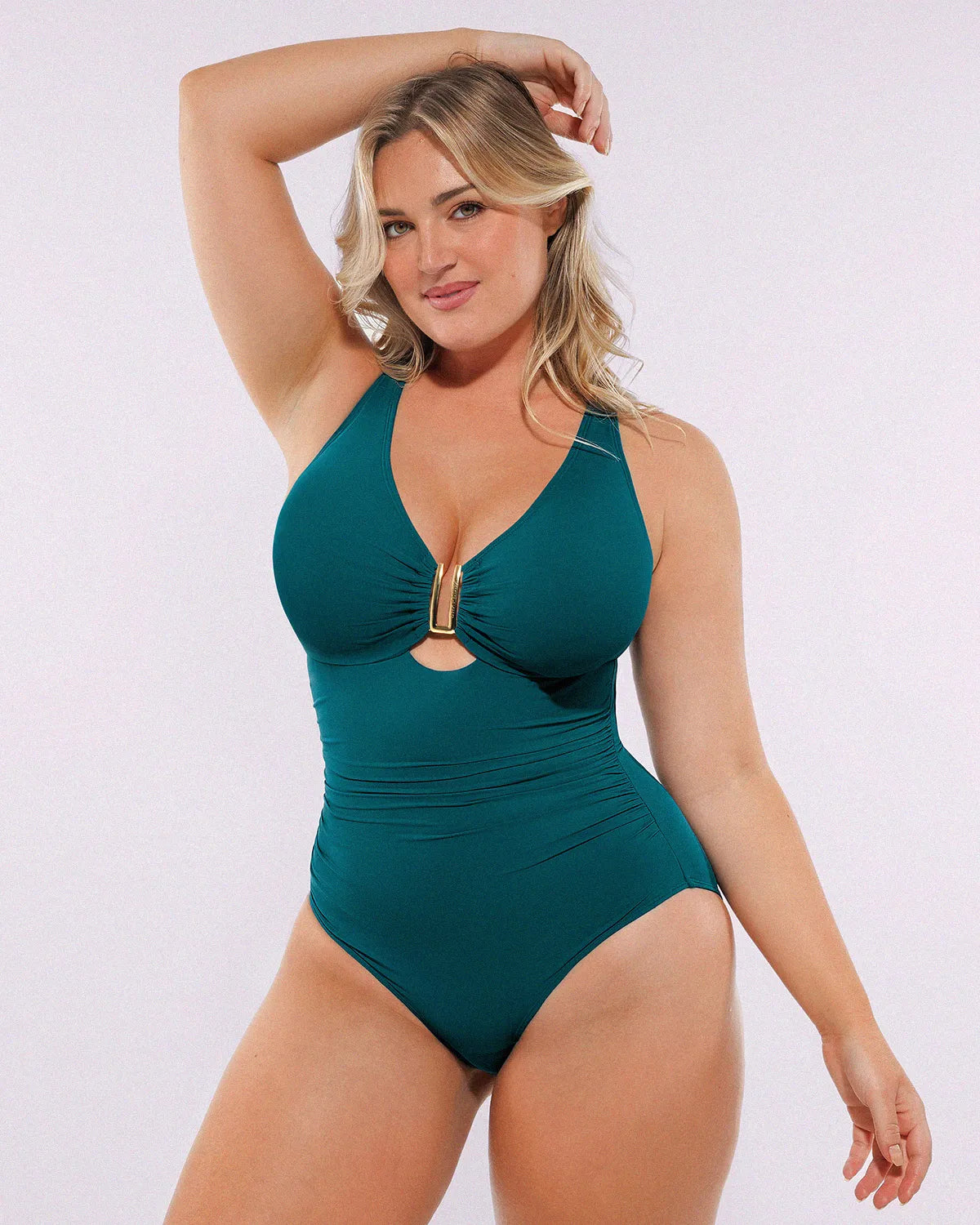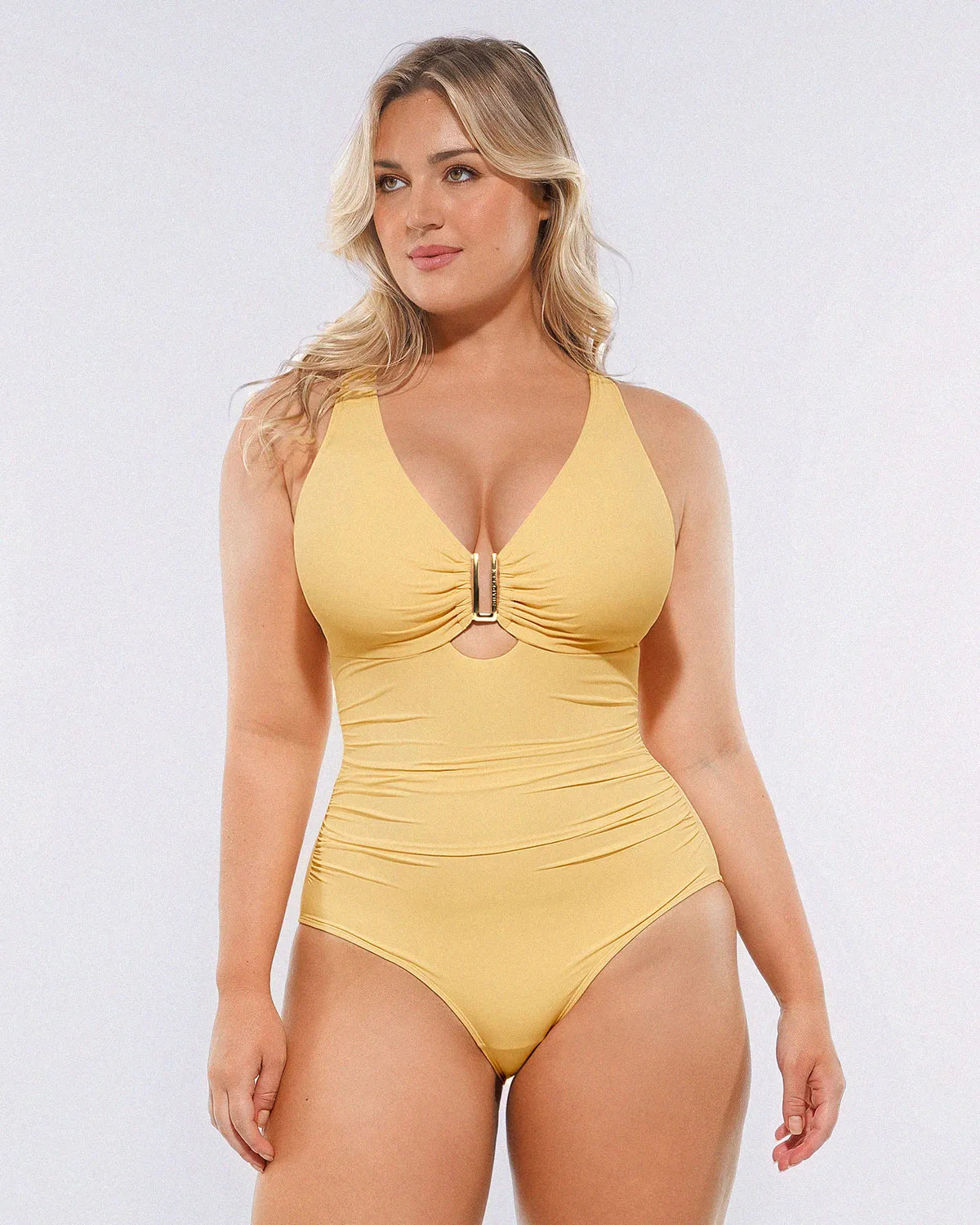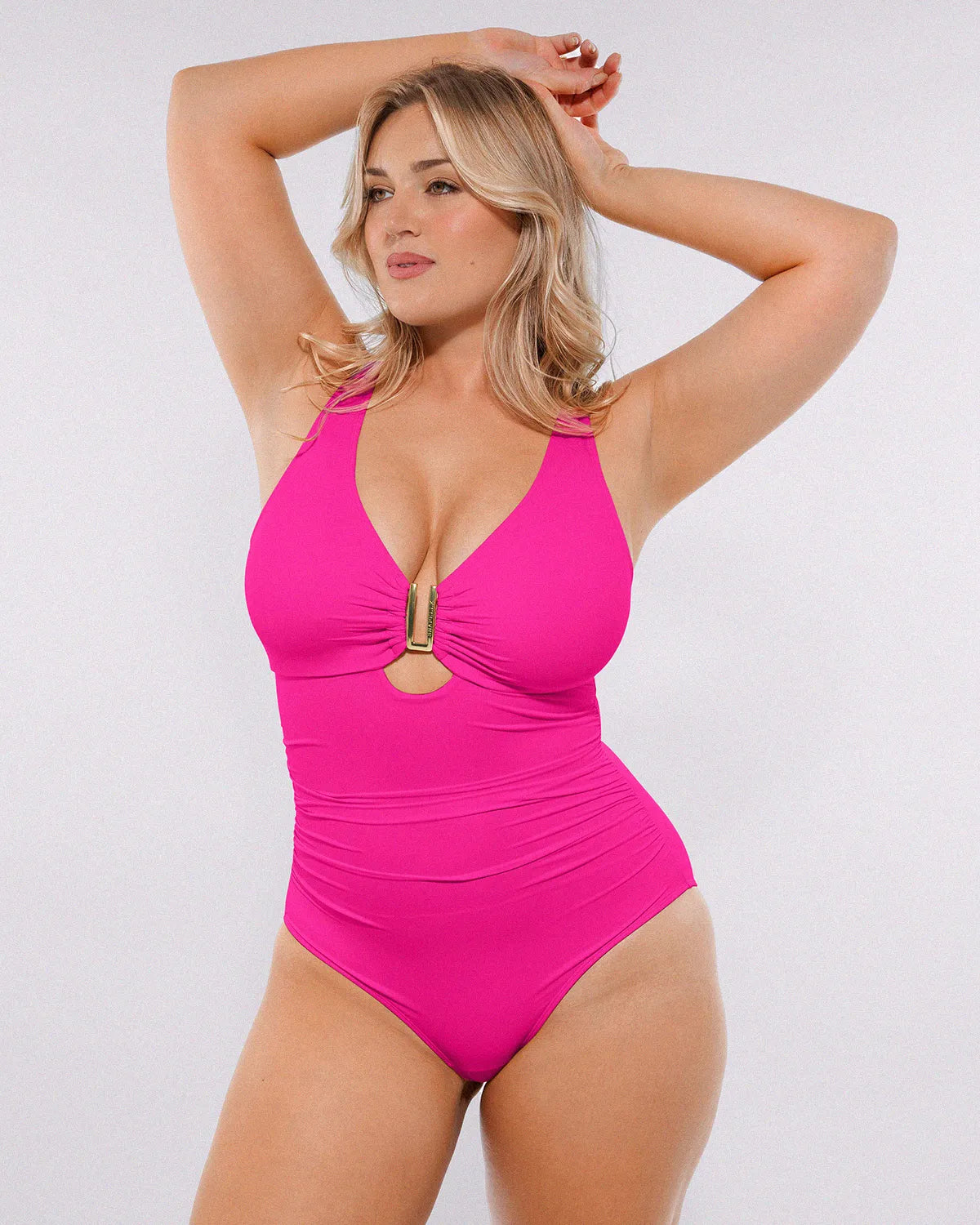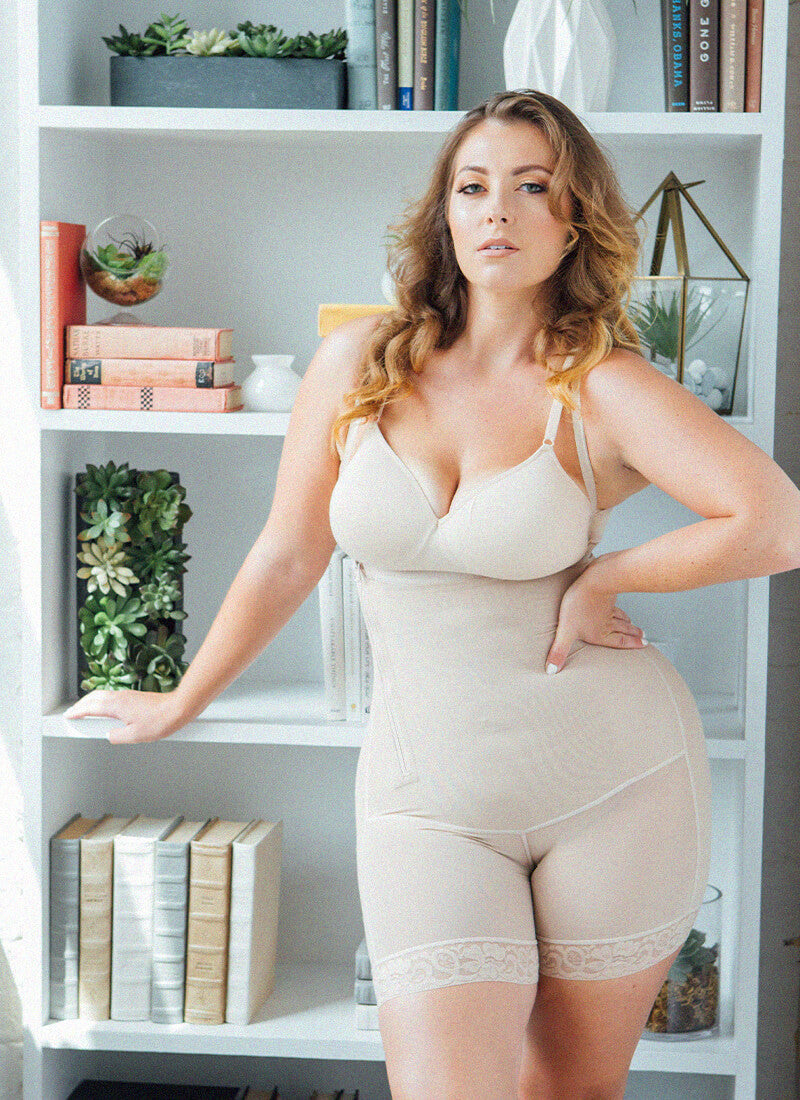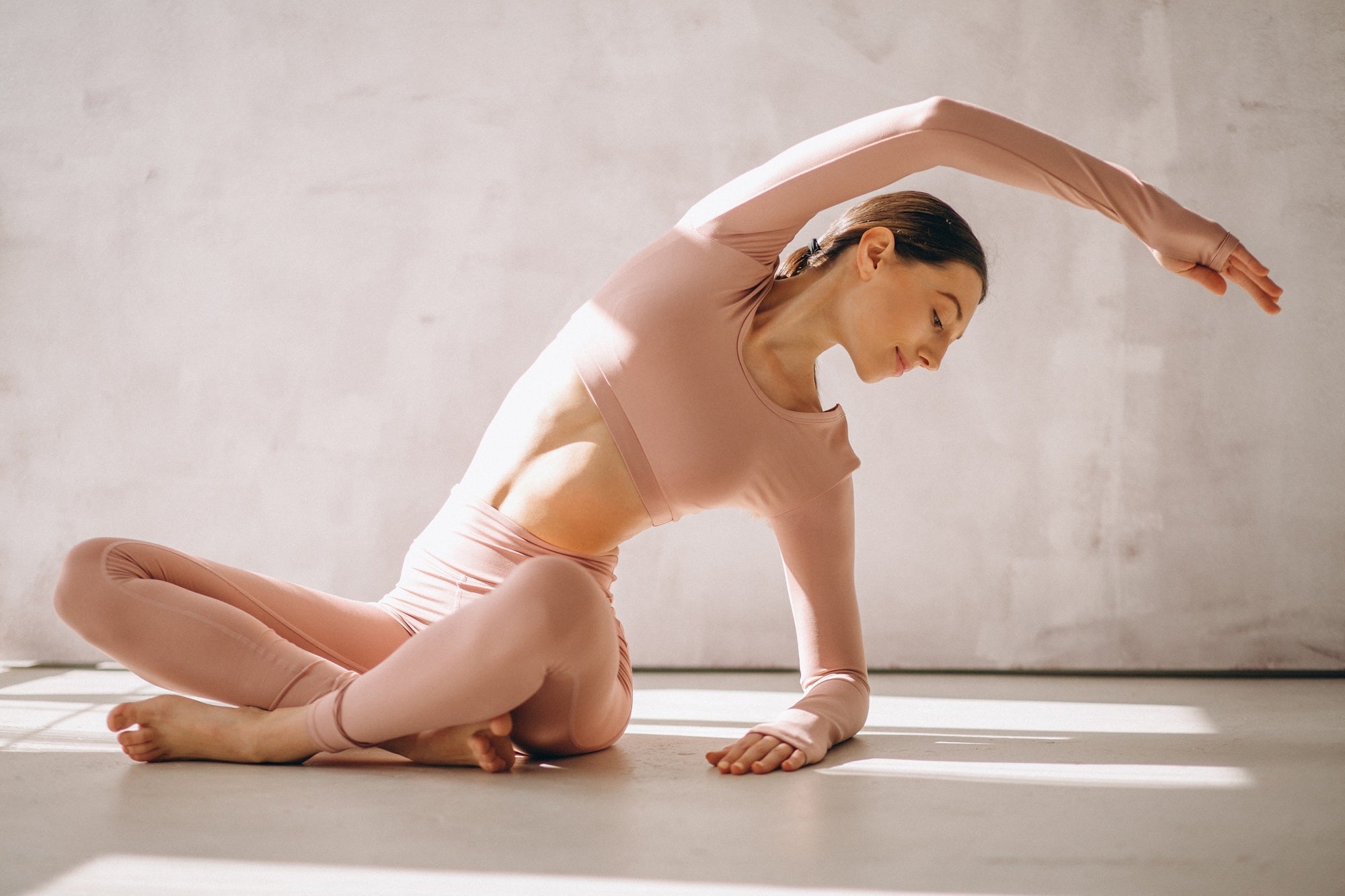
John Shearer // Getty Images
15 celebrities trailblazing body positivity
While it’s difficult to pinpoint the exact origin of the body positivity movement, it can be traced as far back as the late 1960s and the fat rights movement. In 1969, New York engineer Bill Fabrey was upset at the treatment his wife, Joyce, received because of her size. In the years since, the movement has gained traction and shifted from size acceptance to body acceptance. Body positivity means not just embracing body size, but shape, color, and gender. Of course, there are always opponents in any movement. Those who oppose body positivity cite dangers of obesity and unhealthy lifestyles of overweight people—challenges that are themselves opposed by activists and encapsulated in the “Healthy at Any Size” movement, which challenges fatphobic assumptions in science and medicine and drawing on the social, economic, and environmental factors that contribute to health.
In recent years, social media has allowed celebrities—many of whom have suffered because of diet culture and restrictions—to embrace and support the body-positive movement using their robust platforms. For every diet guru pushing “thin is in” and the quest for the “perfect body,” there is a celebrity or activist pushing back with body-positive clothing lines, makeup, podcasts, and groups.
Shapellx® selected 15 celebrities who have been open about their body image and have sought to disrupt traditional beauty and body standards for women. They are not only fighting traditional beauty norms, but racism, ableism, classism, and sexism.
From the largest plus-sized model in the history of the fashion industry to the celebrity who posed proudly displaying her kidney transplant scar, to the tennis champ embracing her strong body, to the transgender actress campaigning for body acceptance in every form, these celebrities are blazing a trail for all of us to finally feel good in our skin, whatever its shape, size, or color.
This story contains mentions of eating disorders and body shaming. Please take care while reading.

Steven Ferdman // Getty Images
Lizzo
An advocate for body positivity, Lizzo embraces her body and has been very vocal about it. When the singer posted a video on her Instagram story in mid-December regarding a 10-day, smoothie-based detox she was doing, people were upset. Some felt she was caving under the pressure of diet culture and others felt she was finally getting “healthy” by losing weight. Lizzo finally addressed both sides on Instagram, alongside a photo where she proudly displayed her body, saying, “I detoxed my body and I’m still fat. I love my body and I’m still fat. I’m beautiful and I’m still fat. These things are not mutually exclusive.”
LEARN MORE
Shapewear is having a serious moment. From celebrities flaunting it on the red carpet to openly talking about wearing it to achieve the perfect look - it does it all. Finding your right fit can be a challenge but it doesn’t have to be! Check out our beginner guide to see recommendations for real body types.

Ashley Graham
While she was the first “plus-size” model to be on the cover of Sports Illustrated and Vogue, Ashley Graham dislikes the term. The model and mother fights for size inclusivity, proudly acknowledging that she is a size 16. “My brand is about confidence and owning who you are and being honest with who you are,” Graham said in an interview with WSJ Magazine. “I think that’s incredibly reflective of my Instagram, my YouTube, my podcast. I just wish that I had someone that was as real and honest and open when I was in middle school, high school, moving to New York.”
Part of that confidence comes with wearing what makes her feel comfortable, starting with undergarments. "I have a big white couch that carries all of my bras and all of my shapewear,” Graham told E! News. “... Really, the trick that I have is to have multiples of different materials, lengths and heights on the tummy, because you never really know what your outfit is going to be.

Astrid Stawiarz // Getty Images
Tess Holliday
Body-positivity model Tess Holliday created #EffYourBeautyStandards, a hashtag designed to challenge the beauty standards that prioritize thinness and specific shapes of bodies. MiLK Model Management signed her when they stumbled upon it, and at a size 22, Holliday became the largest plus-sized model in the history of the fashion industry. When she recently opened up about her struggles with anorexia, people were upset and confused about how someone who is so vocal about loving her body can also battle an eating disorder. Holliday said she understands, telling Good Morning America in a recent interview, “I am plus size, but advocating for diversity and larger bodies, and so I think for people hearing me say I’m anorexic was really jarring.” Holliday went on to explain she thinks the larger problem is “a lack of diversity and representation in the world,” even when it comes to eating disorders and who has and can struggle with them.
And she’s not afraid to wear what makes her happy—such as shapewear and a bare face—regardless of any judgment she may receive. "Wearing makeup doesn't make me less of a feminist, & neither does wearing shapewear,” Holliday said in an Instagram post. “It's all about our choice to wear & do what we want with our bodies. I will keep resisting.
TRENDING
We've all got several 'investment' pieces of lingerie and underwear. Investing in one or two shapers, with power design for your body shape and maximum efficiency is a smart move.Check out our suggestions for investment shapewear.

Emma McIntyre // Getty Images
Ariel Winter
Ariel Winter grew up in front of the camera on the hit show “Modern Family,” and she experienced plenty of body negativity when she hit puberty as her body began changing. She credits her sister and her co-star, Sofia Vergara, for helping her embrace her own body. Winter also had breast reduction surgery and has been very open about it and the struggles she overcame, including the negative way her own mother responded to her body.

Steven Ferdman // Getty Images
Rihanna
Rihanna claps back at the old adage that beauty is reserved for one body size and has used her line Savage x Fenty to slay this myth. Her line boasts an inclusive lingerie line offering sizes ranging from XS to 3XL with cup sizes in 32A to 40DDD. The singer and entrepreneur has also pushed size inclusivity at her Savage x Fenty show during New York Fashion Week by featuring models who come in many shapes and sizes, including pregnant models.

Emma McIntyre // Getty Images
Demi Lovato
Singer Demi Lovato has struggled with addiction, mental illness, and eating disorders. Lovato had been open with their fans about their struggles on social media and in interviews. Finally coming into their own, Lovato came out as nonbinary in May 2021 and continues to share positive messages on social media that dismiss diet culture and promote body positivity.
Dylan Buell // Getty Images
Serena Williams
Tennis legend Serena Williams wrote about the body criticism she’s received in a 2017 essay on Reddit, noting, “It has been said I don't belong in women’s sports — that I belong in men’s — because I look stronger than many other women do.” In an interview with rapper Common, Williams discussed how she came to accept her strong body, one that some people criticized for holding such power. “Who says I’m too strong? This body has enabled me to be the greatest player that I can be.” Williams continued, “And now my body is in style, so I’m feeling good about it. Like, I’m finally in style! It took a while to get there.”
DID YOU KNOW?
There are actually half a dozen benefits to wearing shapewear while exercising. Whether your goal is weight loss, performance, or just general health, we’ve compiled recommended fits and tips to get your physical activity and shapewear all in one.

Antony Jones // Getty Images
Iskra Lawrence
Supermodel Iskra Lawrence has become known for letting her natural beauty show through in untouched Aerie ads and Instagram posts. The body positivity advocate believes in being honest about what a real body looks like. Lawrence normalizes that even a model’s body doesn’t fit the impossibly narrow beauty standards, frequently posting photos and videos showing her untouched body, like a video showing how she uses shapewear and posting pictures of herself that show cellulite in the hopes of shattering the unrealistic beauty ideals women have been saddled with for decades—ideals that come from things like cellulite being edited out of model and celebrity photos.
On her Facebook page, Lawrence has been open about what makes her feel good when getting a formal outfit together, embracing the extra coverage of shapewear at times: “A good ol pair of full coverage shapewear that has straps to throw on over your bra,” she wrote in the post. “I wore a see through lace dress to an event and even though it felt comfortable just wearing bra and a normal brief undie, when the flashes went off it literally looked like I was just in my undies right there in front of hundreds of people on the red carpet.”

Randy Shropshire // Getty Images
Laverne Cox
As a transgender woman of color, Laverne Cox has used her platform to promote body positivity for all no matter shape, skin color, gender, or size. Cox believes people should love and accept who they are, no matter what. She is also an advocate for trans individuals and has fought for their media representation, posing nude for an Allure pictorialpromoting body acceptance and awareness. The actress partnered with Smirnoff in 2021 for a World Pride campaign.

Rich Polk // Getty Images
Amber Riley
Amber Riley, who starred in the popular television series, “Glee,” released her single “BGE” (Big Girl Energy) from her EP “Riley” in 2020. The message in the song is the same one she embraces in her own life: to be proud of who you are and love your body. The singer told People magazine, “You don't owe anybody a specific body type. You don't owe anybody, whether that's big or small, you don't owe anybody that."
 Gregg DeGuire // Getty Images
Gregg DeGuire // Getty Images
Mindy Kaling
Motherhood has helped actor, producer, and writer Mindy Kaling embrace her body. While ceremonies like the Oscars would have Kaling skipping meals, with motherhood she had to give up such punishing practices. Since becoming a mother and moving into her 40s, Kaling has learned to let go, celebrating her body with flattering shapewear and being outspoken about embracing the person she sees in the mirror. Kaling told Shape magazine, “I love to eat at restaurants, I love to eat home cooking, and I don't like restricting my diet. And [now] I'm like, as long as I'm getting enough nutrients and feeling like my heart and my lungs are really getting exercise, I don't really beat myself up about that."

Emma McIntyre // Getty Images
Aidy Bryant
Comedian and “Saturday Night Live” cast member Aidy Bryant became one of the SNL’s youngest cast members when she joined in 2012 at 25 years old. Growing up in Arizona, the land of tank tops and shorts, Bryant learned about self-deprivation and dieting, though she now understands how important it is to love your body, no matter its shape or size. Her work on the comedy series “Shrill” was a revelatory examination of the fatphobia people in bigger bodies face while showing how such prejudice is just one aspect of a person’s life. Vice called the show “the Mona Lisa of body positive television.”

Emma McIntyre // Getty Images
Selena Gomez
Singer and actor Selena Gomez has struggled with the auto-immune disease lupus and had a kidney transplant in 2017. She has to take medications for the rest of her life as a result of the transplant, and they can cause weight fluctuations. After initially feeling upset and confused at the body-shaming she endured on social media and in the press, Gomez is learning to embrace her body, including the scar from her kidney transplant, the one she tried to cover up initially. When she modeled a swimsuit on Instagram for her friend's body-positive swimsuit line, Gomez did not shy away from showing her scar.

ARIANA DREHSLER // Getty Images
Alicia Keys
In 2016, singer Alicia Keys was honest about her effort to go bare and give up wearing makeup. Keys intended her skincare brand, Keys Soulcare, to allow people to embrace their own beauty and not an ideal contingent on using makeup. The singer also notes that harmful body ideals harms boys as well as girls. As the mother of young boys, she told Essence, “For boys, I noticed that they’re very concerned with muscles. So I think that that’s interesting, right? Because we all have these images that have been shown to us in our head about what masculine or feminine is.”

Rich Polk // Getty Images
Jameela Jamil
Actor and body positivity activist Jameela Jamil knows what it’s like to struggle with an eating disorder. In a January 2021 Instagram post, she shared a photo where she thought she looked “too fat” and discussed starving herself for the shoot. She added, “Eating disorders are a terrible and upsetting thing. This is why I bang on and on about diet culture, because it was my slippery slope to losing all sense of reality and all of my time, energy, sex drive, and joy.” Jamil started I Weigh, a podcast and community aimed at promoting inclusivity.

